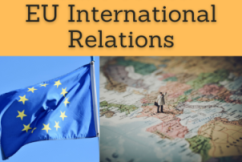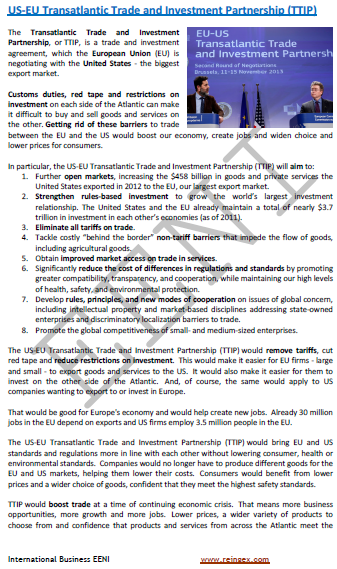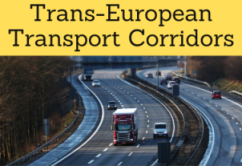European Foreign Policy. External Relations

Enlargement and Neighborhood policies, European Union. Eastern Partnership
- Introduction to the External Relations and the Trade Policy of the EU
- European Union's Common Foreign and Security Policy (CFSP)
- Historical evolution of the EU Foreign Policy
- Role of the European Parliament and the European External Action Service
- The EU and the WTO
- Enlargement and neighborhood policies of the EU
- EU Enlargement
- European Neighborhood Policy
- Eastern Partnership. Agreements with Georgia, Moldova and Ukraine
- Western Balkans
- South Caucasus
- Black Sea Synergy
- Adriatic-Ionian Initiative
- European Economic Area (European Free Trade Association) and Switzerland
- Southern partners: Algeria, Egypt, Israel, Jordan, the Lebanon, Libya, Morocco, Palestine, Syria and Tunisia
- Customs Unions with Andorra, San Marino and Turkey
- Strategic partners of the EU:
- Relationships beyond the EU Neighborhood
- Russia
- Arab Countries: Agreements with the Gulf Cooperation Council (GCC), Iraq, Yemen
- Asia: Agreements with the ASEAN, Indonesia, Singapore,
Vietnam, Papua New Guinea, Fiji, Kazakhstan, Central Asia, New Zealand
- The EU has not relations with Iran
- Latin America and the Caribbean (EU-CELAC): Agreements with the Andean Countries, the CARIFORUM, the MERCOSUR, Mexico, Central America and Chile
- Africa: Strategic Partnership with the EU (Cotonou Agreement)
- Agreements with the CEDEAO, Cameroon, Ivory Coast, South Africa, Ghana, SADC, EAC
- Agadir Agreement
- The EU Trade regimes applicable to the developing countries
- GSP
- EU Agreements
- Introduction to the EU foreign trade
- The EU's Development Policy.
- 2030 Agenda for Sustainable Development
- Financial instruments for the external action
- The EU humanitarian aid
- Other regional institutions related to the EU
- Asia-Europe Meeting
- Central European Initiative
- OSCE
- Council of the Baltic Sea States
- Regional Cooperation Council
- SAARC(Observer)
- United Nations UNECE
The objectives of the subject “European Foreign Policy” are the following:
- To know the fundamentals of the EU's Foreign Policy
- To analyze the EU enlargement and Neighborhood policies
- To understand the EU's relations with its strategic partners
- To analyze the EU's relations with other regions (Africa, America, Asia...)
- To understand the EU trade regimes applicable to the developing countries and the Generalized System of Preferences (GSP)
- To analyze the EU economic agreements and Trade Agreements

The Subject “European Union Foreign Policy” belongs to the following Online Programs taught by EENI Global Business School:
Doctorate: European Business, World Trade.
Masters: International Business, Foreign Trade.
Course: International relations of the EU.

Languages:  or
or  Politica Exterior UE
Politica Exterior UE  Politique extérieure de l’UE
Politique extérieure de l’UE  Política Externa da UE.
Política Externa da UE.
Masters adapted for  EU Students.
EU Students.

Foreign Policy of the EU
In 1993 the EU created the Foreign and Security Policy.
The European Parliament oversees the EU Foreign Policy through the European External Action Service.
The objectives of the EU Foreign Policy are:
- Peace Preservation
- Strengthening the international security
- Promoting the international cooperation
- Fostering the rule of law, human rights and democracy
Since the crisis of 2008, the EU has promoted Free Trade Agreements and association agreements with the third countries seeking, among other things, to reduce trade barriers faced by many European exporters.


(c) EENI Global Business School (1995-2024)
We do not use cookies
Top of this page



